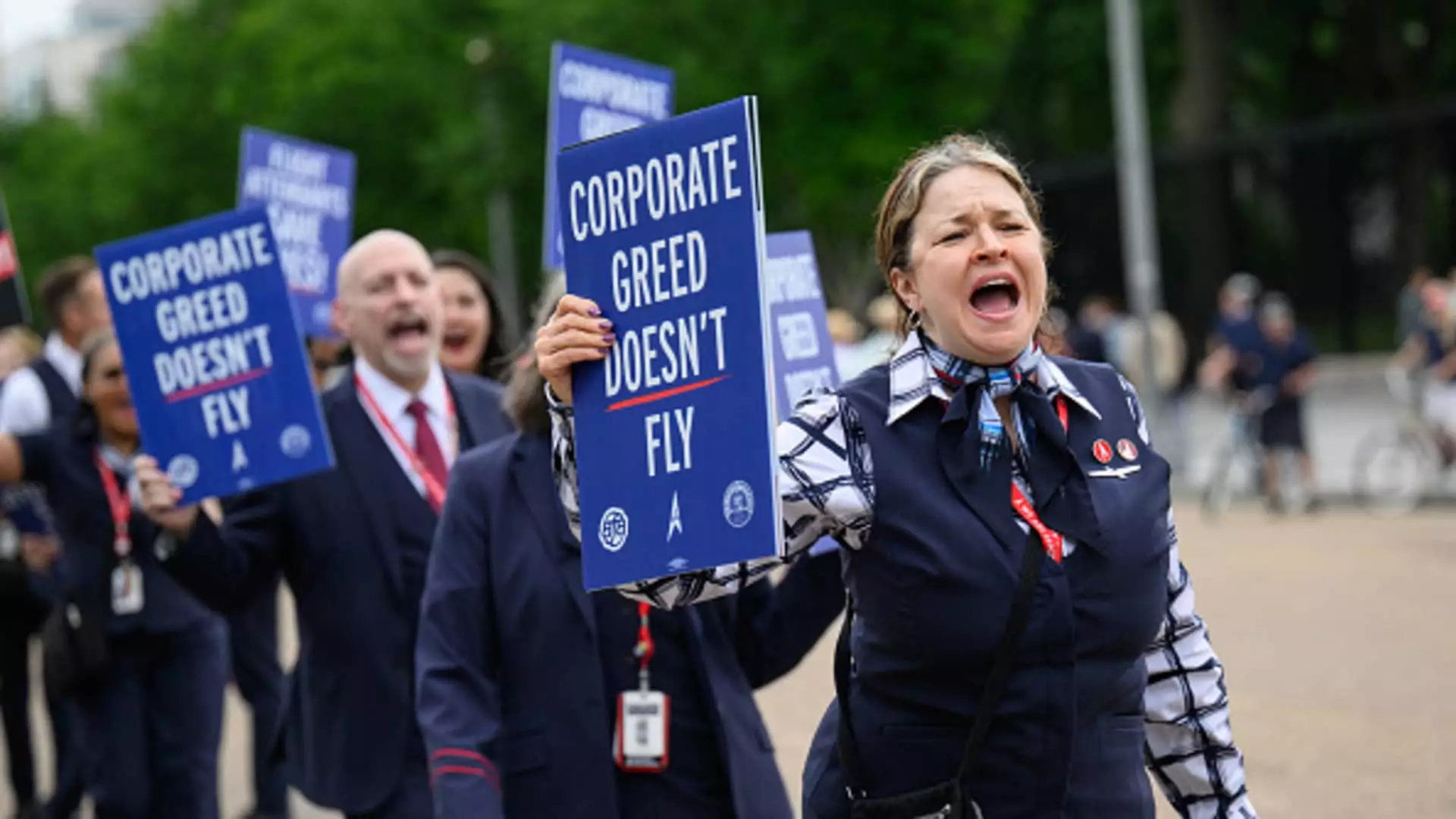The ongoing contract negotiations between American Airlines and the Association of Professional Flight Attendants have hit a roadblock, with the rejection of a company proposal to immediately raise pay by 17%. This move by the union has brought the prospect of a strike closer, as the two parties continue to differ on major issues, such as pay.
CEO Robert Isom offered flight attendants an immediate 17% wage increase as contract talks continue without a resolution. Despite this offer, the union stood firm in their decision and emphasized that there is still work to be done. The union’s national president, Julie Hedrick, highlighted the importance of focusing on a longer-term deal rather than quick fixes.
In response to the rejected offer, the airline warned flight attendants to prepare for a strike, a rare occurrence among airline employees. Additionally, the two parties are scheduled to meet with federal mediators next week in a “last-ditch” effort to reach a deal. If an agreement is not reached, a release by federal mediators could be triggered, leading to a lengthy process that could take several weeks.
Flight attendants at American Airlines have not received contract raises since before the pandemic, making negotiations more crucial for their financial well-being. While the CEO’s proposal offered immediate pay increases and other benefits, the union remains focused on securing a comprehensive deal that addresses long-term concerns.
The standoff between American Airlines and its flight attendants is part of a broader trend in the airline industry. While U.S. airline pilots have largely locked in new labor deals, flight attendants at American, United Airlines, and Alaska Airlines are still in the negotiation process. This has drawn the attention of policymakers, with a bipartisan group of House representatives urging the National Mediation Board to assist in completing deals with airlines and flight attendants.
The current impasse between American Airlines and the flight attendants’ union highlights the challenges faced by airline employees in negotiating fair contracts. The rejection of the company’s proposal for an immediate pay increase underscores the complexity of the issues at hand and the importance of reaching a long-term agreement that addresses the concerns of all parties involved. As the negotiations continue, the outcome will not only impact the airline industry but also the livelihoods of flight attendants who play a crucial role in ensuring passenger safety and satisfaction.

